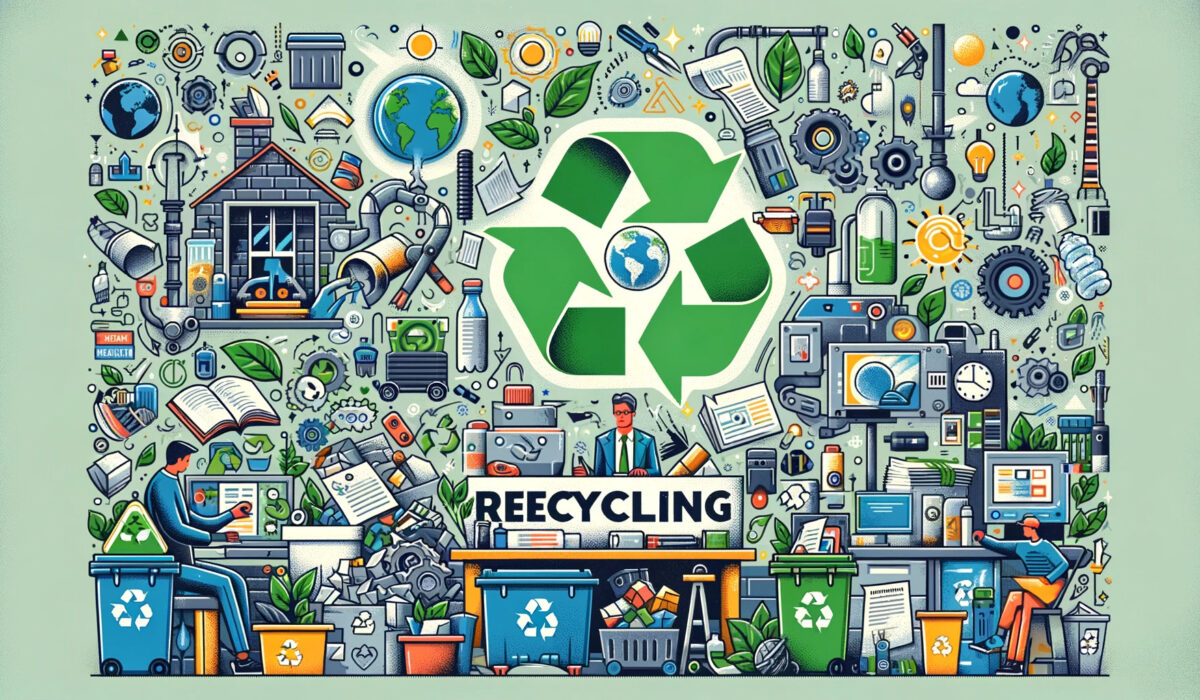SUSTAINABILITY AND RECYCLING

A clean environment and a clean future are necessary to protect the sustainability of the world. Cleanliness of the environment is the responsibility of the people who live in that environment, therefore, an adequate education is necessary to reach that consciousness. Even though environmental pollution creates a danger for people, the danger originates from people. The increase in population, industrialization, and urbanization will not happen without human intervention, therefore, the environment will not be affected as much as it is affected now. As a result, the environment cannot hurt humans, human hurt the environment.
To minimize the damage that human creates to the environment, recycling waste and garbage is one of the steps that can be taken. It is also important to have information about which litter will disappear and when will it disappear. For example, it is important to establish the link between wastes that can be mixed with nature and materials that do not disappear for years and remain as garbage. This connection teaches people which materials can be used, where to put those materials, and how to dispose of them. For this reason, it is very essential to raise awareness, to increase recycling and sustainability of the environment.
Worldwide, one of the biggest environmental problems is waste management, however, it ends up as a lack of waste management. While there is one-kilogram waste production per person, there are 3 billion waste cycles including municipal and industrial waste. Some measures must be taken since we have an ecosystem that no longer can hold on to this cycle. The importance of recycling lies in reducing the amount of waste in the rubbish dump, protecting natural resources, and decreasing the effects of humans on the environment. Recycling helps to protect natural resources by reducing the need for raw materials which are harmful to the environment. Recycling paper, plastic, metal, and glass can reduce the demand for raw materials and protect energy and resources.
Incineration of waste can lead to air pollution unless it is being done to produce energy. Filters and protective measures have to be taken to no to cause air pollution. Since incineration or disposal of waste can be harmful, recycling materials rather than throwing them into the garbage, reduce landfill waste and waste consumption for incinerators, thereby decreasing greenhouse gas emissions and air pollution. Every minute without recycling results in borrowing future resources that harm the environment, therefore, using the resources efficiently is an investment in the future.
Reducing the usage of some materials, using reusable products, and recycling the products will increase this efficiency. However, every step taken to increase this efficiency should be supported by conscious consumers. For example, if we unconsciously use recycling bins, the steps taken are meaningless. Recycling materials such as paper, cardboard, metal, glass, plastic, and tin are among the materials that should be given priority.
Recycling is beneficial to the economy as much as it is beneficial to the environment. It reduces the cost by helping to decrease the amount of waste. Moreover, the production of recycled materials spends less energy and resources than raw materials, therefore, it provides benefits for business owners and consumers economically. The reuse of products not only provides benefits to the labor and cost but also prevents the products to release to the market that nature hates. For example, recycling aluminum requires 90-95% less energy than reproducing it. Therefore, it is a better choice for both natural resources and economic reasons.
Recycling is important for protecting natural resources, reducing waste, and minimizing people’s influence on the environment. Since recycling bins make the work of the collectors easier, they also help the people who do the collection to life. Each recycling bin has a purpose that it serves, and recycling the materials that the collectors take to the factories provides a benefit to both the collector and the factory.
Recycling applications are important for a sustainable future with the reuse of materials that do not have a chance to regenerate when released into nature. Lack of raw materials, not consuming natural resources, and recycling to make an economic contribution, in short, are of great importance for a sustainable life. By promoting the importance of recycling for this life span, we provide an opportunity to offer ourselves and the next generations a better future.

